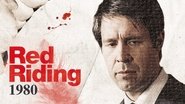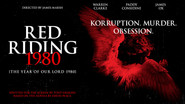StunnaKrypto
Self-important, over-dramatic, uninspired.
Keira Brennan
The movie is made so realistic it has a lot of that WoW feeling at the right moments and never tooo over the top. the suspense is done so well and the emotion is felt. Very well put together with the music and all.
Ella-May O'Brien
Each character in this movie — down to the smallest one — is an individual rather than a type, prone to spontaneous changes of mood and sometimes amusing outbursts of pettiness or ill humor.
Skyler
Great movie. Not sure what people expected but I found it highly entertaining.
lasttimeisaw
A binge watching of RED RIDING TRILOGY, three TV movies adapted from David Peace's RED RIDING QUARTET, where its second chapter 1977 is skipped. Directed by three different directors in three different formats: 1974 by Julian Jarrold in 16mm film, 1980 by James Marsh in 35mm film and 1983 by Anand Tucked with Red One digital camera, the trilogy forebodingly trawls into the organized crimes and police corruption in West Yorkshire through the prisms of three different protagonists while they are wrestling with a series of murder cases, and overall, it inspires to achieve a vérité similitude of the bleak milieu while sometimes being mired with its own navel- gazing, such as narrative banality (1974), over-calculated formality (1980) and poorly indicated flashback sequences (1983). The police corruption which disclosed in 1974 turns out to be just a tip of a humongous iceberg, in 1980, after the inaction of the current head Bill Molloy (Clarke), our protagonist is Assistant Chief Constable Peter Hunter (Considine, in an atypical clean-cut appearance), who takes up the gauntlet to investigate the notorious Yorkshire Ripper case (inspired by the real events), which has already claimed a dozen lives, mainly female prostitutes. But soon he will meet more resistance and pressure from within the police department when he is tipped that one of the victims might not be the ripper's work. The tension retains in a high-strung tenor when we see a diligent Peter being taunted by the reprobates on a daily base, in particular from officer Bob Craven (Harris, reprised his role from 1974, and he is so delectably sinister through and through), the lowest scum of the earth. There are some gnawing hitches mined in the narrative, a key confessor is timely dispatched when he refuses to divulge the information on the phone but also has no intention to meet Peter in the hotel where he stays, instead, he asks Peter to come to his home in the witching hour, only to a sorry outcome. Also, it is unwarranted for Peter to appoint Helen Marshall (Peake), his former adulteress, into his team, to further complicate his scrape, plus a superfluous subplot of his broody effort is ironically dismissed by Helen's unsolicited abortion. After finally revealing the bloody picture of that singular murder (not done by the ripper), which connects to the finale of 1974, the story again, sets up a chilling twist to be brutally honest about to which rank extent the forces of law and order has been sullied.
SnoopyStyle
A serial killer is on the loose and the West Yorkshire Police are helpless. Assistant chief Bill Molloy breaks down on TV and Peter Hunter (Paddy Considine) from Manchester is recruited to lead a second investigation. He takes Helen Marshall and John Nolan with him. Harold Angus assigns Bob Craven to be the liaison. Hunter had investigated the Karachi Club killings which Eddie Dunford was involved with at the end of the previous movie. As the investigation continues, Hunter faces accusations of an affair with Marshall.Paddy Considine is playing a very reserved character. Most of the story is not directly connected to the missing girls story. The serial killer story wraps up in the most unsatisfying way possible but the last ten minutes do reconnect back to the original story. This is a bit of a side trip with little nuggets of information for the bigger picture.
CinemaClown
The second chapter of the Red Riding Trilogy, In the Year of Our Lord 1980 blends the real- life case of The Yorkshire Ripper into its fictional story and follows a Manchester detective who is assigned to assist the Yorkshire police in apprehending the serial killer but ends up uncovering something far more sinister.Directed by James Marsh (best known for Man on Wire & The Theory of Everything), this TV feature does offer slight improvements over the preceding chapter for the plot twists unfold in a more sensible manner, even the elements of mystery & suspense make its presence felt unlike the last time, and the captivating score further enhances the whole experience.However, despite bringing the Yorkshire Ripper arc into its storyline, In the Year of Our Lord 1980 never really deals much with that subplot, something that I was really looking forward to, and is simply a continuation of the same themes that surfaced in the previous part. Still, it's a definite upgrade over its predecessor for the direction is more confident, execution is more refined, and experience is more fulfilling.
kluseba
After the brilliant ending of the first part of the trilogy, I expected a lot from this second part. In the beginning, this follow-up didn't meet my expectations but after I've had accept the new style and the new story line I began to appreciate this movie a lot.This movie takes place six years after the ending of the first movie. Peter Hunter, played by a brilliant and insightful Paddy Considine, comes back to Yorkshire after he had investigated on the shooting scene that took place in the end of the first movie but he wasn't able to resolve the crime at that time because his wife had lost a child. A few years later, he comes now back to resolve the crimes of the Yorkshire Ripper who had killed thirteen young women. But the demons of the past are still present and Peter Hunter wants to resolve the case he had once to abandon. But as he is torn into a circle of lies, corruption and criminality, his enemies tries to stop his investigations.The second part of the trilogy has a slow paced beginning as the first one and the connections to the end of the first part are not yet visible. Later on, there are some flashbacks and memories that explain what has happened after the tragical ending of the shooting scene and in the end of this second part, we get to know what really happened as Peter Hunter meets an eyewitness that was present during the shooting and what happened afterwards. The ending of the movie is well done even if it is a little bit too predictable.A part of this interesting story line in relation to the first movie, this film is much more a personal drama than a suspenseful thriller. The search for the Yorkshire Ripper is not really addicting and the solution of this case is rather silly and boring. That's the main weak point of this movie as this investigation is an unsatisfying deception. They should have elaborated a little bit more on that or they should not have included this detail at all.What is interesting about this movie is the personal drama part of it. The movie talks about love, passion and loss and Peter Hunter who lives all kind of difficult moments and uneasy emotions. The movie talks about such difficult topics like isolation or abortion and those details make this movie really authentic and emotional. Maxine Peake as Hunter's colleague and lover Helen Marshall does an outstanding and credible job as well as Bob Craven as a menacing, provoking and ugly police officer or Peter Mullan as the religious and mysterious Martin Laws. Every character is quite well developed and this is the strongest point of this movie.All in all, this movie is a different genre than the first one. It is rather a drama than a thriller. Once you have accepted that, you will like the profound characters and the talented actors in this movie as well as the interesting connection to the first movie. What rates this movie down is the weak side story line around the Yorkshire Ripper and the fact that the second part of the trilogy has not the same intense atmosphere of a film noir as the first part that did a slightly better overall job. But still, I think that a seven star rating is acceptable for this second part, too and I recommend you to watch this follow-up.





